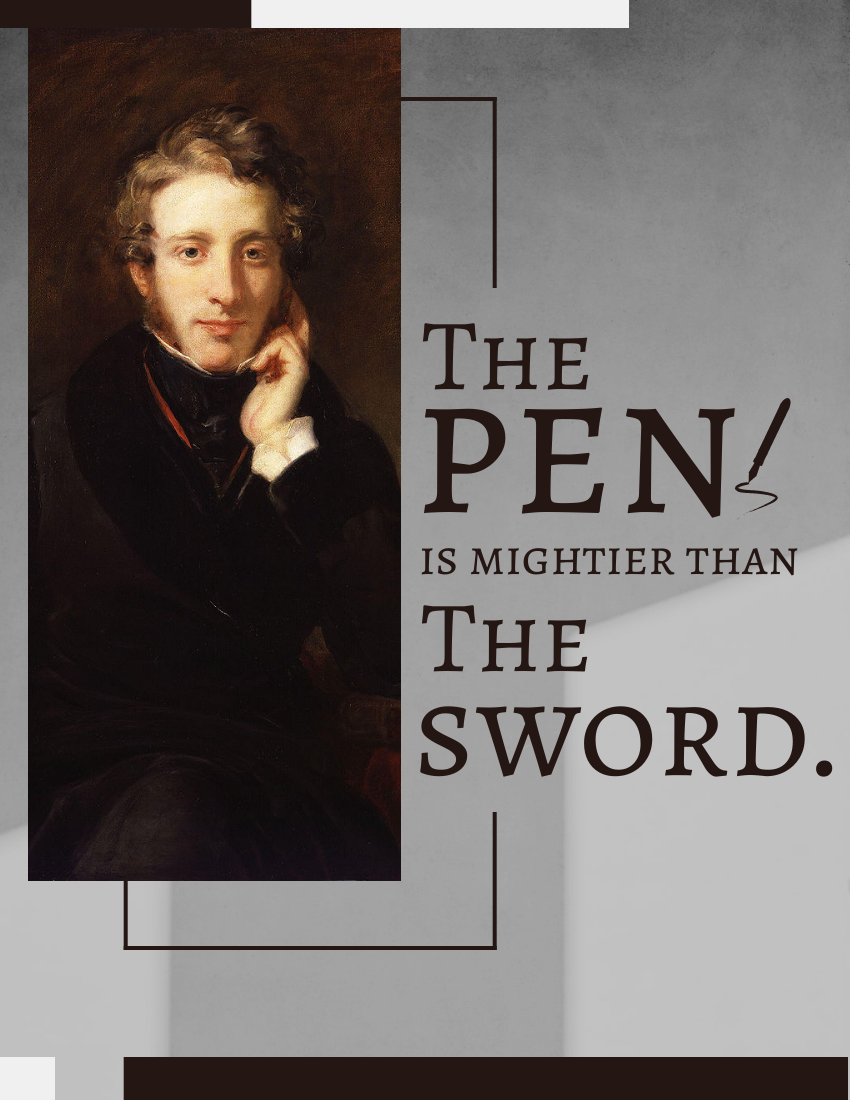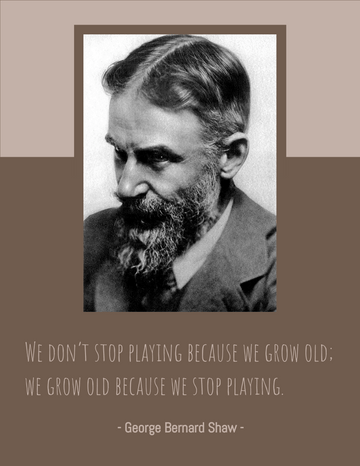Edward George Earle Lytton Bulwer-Lytton, 1st Baron Lytton, PC (25 May 1803 – 18 January 1873) was an English writer and politician. He served as a Whig member of Parliament from 1831 to 1841 and a Conservative from 1851 to 1866. He was Secretary of State for the Colonies from June 1858 to June 1859, choosing Richard Clement Moody as the founder of British Columbia. He declined the Crown of Greece in 1862 after King Otto abdicated. He was created Baron Lytton of Knebworth in 1866.
"The pen is mightier than the sword."
"The pen is mightier than the sword" is a metonymic adage, created by English author Edward Bulwer-Lytton in 1839, indicating that the written word is more effective than violence as a tool for communicating a point. In some interpretations, written communication can refer to administrative power or independent news media.
Origin
The sentence was coined by English author Edward Bulwer-Lytton in 1839 for his play Richelieu; Or the Conspiracy. The play was about Cardinal Richelieu, though in the author's words "license with dates and details ... has been, though not unsparingly, indulged". The Cardinal's line in Act II, scene II, was more fully:
True,—This!
Beneath the rule of men entirely great
The pen is mightier than the sword. Behold
The arch-enchanters wand!— itself a nothing!—
But taking sorcery from the master-hand
To paralyze the Cæsars—and to strike
The loud earth breathless!—Take away the sword—
States can be saved without it!
The play opened at London's Covent Garden Theatre on 7 March 1839 with William Charles Macready in the lead role. Macready believed its opening night success was "unequivocal"; Queen Victoria attended a performance on 14 March.
In 1870, literary critic Edward Sherman Gould wrote that Bulwer "had the good fortune to do, what few men can hope to do: he wrote a line that is likely to live for ages". By 1888 another author, Charles Sharp, feared that repeating the phrase "might sound trite and commonplace". The Thomas Jefferson Building of the Library of Congress, which opened in 1897, has the adage decorating an interior wall. Although Bulwer's phrasing was novel, the idea of communication surpassing violence in efficacy had numerous predecessors.
The saying quickly gained currency, says Susan Ratcliffe, associate editor of the Oxford Quotations Dictionaries. "By the 1840s it was a commonplace."
Click here to read the flipbook.





















































